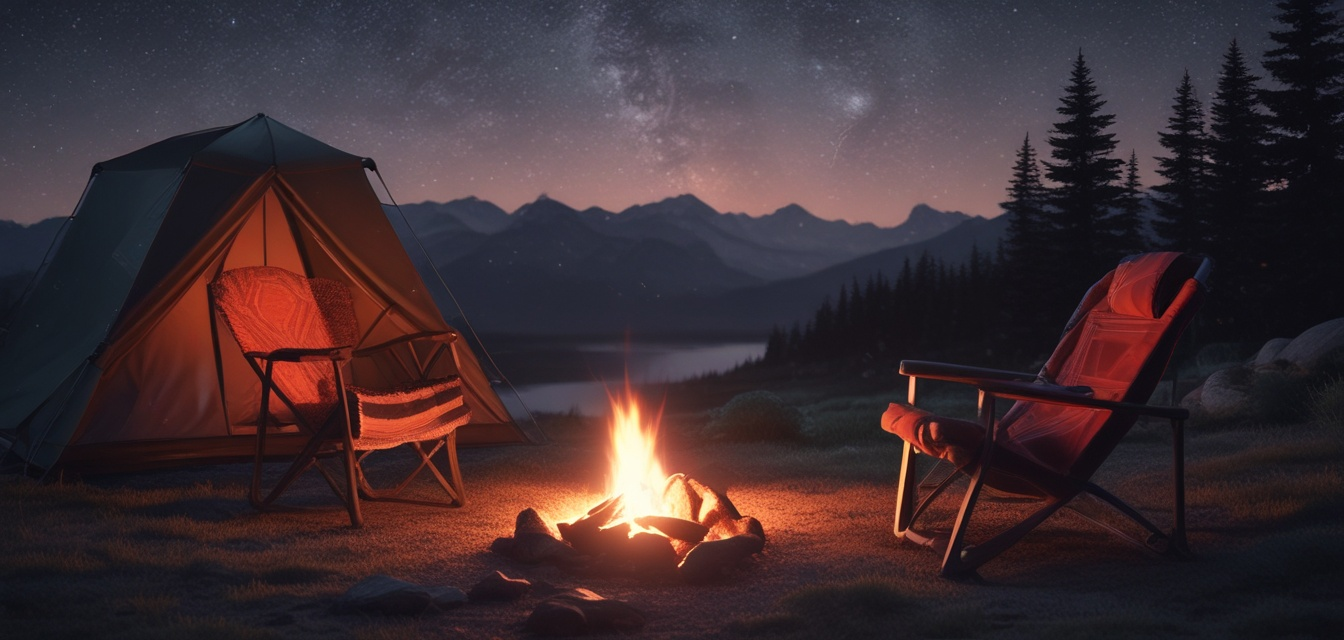
The Best Camping Blankets for Chilly Nights
Key Takeaways
- Choosing the right camping blanket can enhance your outdoor experience.
- Insulation, material, and weight are crucial in selecting the best blanket.
- Look for blankets that are easy to pack and offer good versatility for different weather conditions.
- Understanding your camping style can help in picking the right gear.
Camping is an exciting escape from the hustle and bustle of everyday life. However, chilly nights can dampen the experience if you're not properly prepared. One essential item that can keep you warm and comfortable during your outdoor adventures is a reliable camping blanket. In this guide, we'll explore some of the best camping blankets available, ensuring you make an informed decision for your next camping trip.
What to look for in a camping blanket
When shopping for the best camping blanket for chilly nights, consider the following factors:
- Material: Look for blankets made from warm, durable materials. Fleece, wool, and synthetic fabrics often provide the best insulation.
- Weight: If you're backpacking, choose a lightweight option that is easy to carry.
- Packability: A blanket that can compress down to a small size will make it easier to transport.
- Water Resistance: Some blankets come treated with water-resistant coatings, which can be beneficial for unexpected weather.
- Comfort: Choose a blanket that feels good against your skin for optimal relaxation.
Types of camping blankets
There are several types of camping blankets each with distinct features suited for various camping styles:
| Type | Description | Best For |
|---|---|---|
| Fleece Blankets | Lightweight and soft, fleece blankets provide warmth and comfort. | Car camping and casual outings |
| Wool Blankets | Highly insulated, wool blankets will keep you warm even when wet. | Cold weather camping |
| Insulated Camping Blankets | Designed with special materials that enhance insulation. | Backpacking and chilly climates |
| Packable Blankets | These compress into small sizes and are easy to carry in a backpack. | Long hikes and backpacking trips |
Benefits of using a camping blanket
Using a camping blanket has many advantages:
- Provides additional warmth during cold nights.
- Versatile use for picnics, lounging around the campfire, or as a travel blanket.
- Can be an extra layer on top of sleeping bags, ensuring a good night's sleep.
Top camping blanket recommendations
While choosing the best camping blanket can be subjective based on personal preferences and needs, here are a few popular options you might consider:
Ultralight Camping Blanket
A best-seller known for its warmth and packability, ideal for backpackers.
Learn MoreWarm Wool Camping Blanket
Excellent insulation that retains heat even when damp.
Learn MoreCompact Packable Blanket
Easily folds into a small size, perfect for hiking and travel.
Learn MoreCommon questions about camping blankets
1. How should I clean my camping blanket?
Most camping blankets can be machine washed. Check the care label for specific instructions to avoid damaging the material.
2. Can I use a regular blanket for camping?
While regular blankets may suffice for mild conditions, camping-specific blankets offer better insulation, moisture resistance, and packability, making them more suited for outdoor adventures.
3. How do I choose the right size blanket?
The size depends on personal use, whether for covering yourself while sleeping or as a throw in camp. Generally, a larger blanket is advisable for multiple uses.
Conclusion
Investing in a quality camping blanket can significantly improve your comfort during chilly nights in the great outdoors. By considering factors like material, weight, and packability, along with understanding your camping needs, you'll be well-equipped to select the best blanket that suits your adventures. Don’t forget to check out our other guides on camping blankets and sleeping bags as well as tips and tricks for further insights into your camping gear.
Tips for staying warm while camping
- Layer your clothing for better insulation.
- Use a sleeping bag rated for the temperatures expected.
- Consider a camping mat to insulate from the cold ground.
- Bring extra blankets for additional versatility.